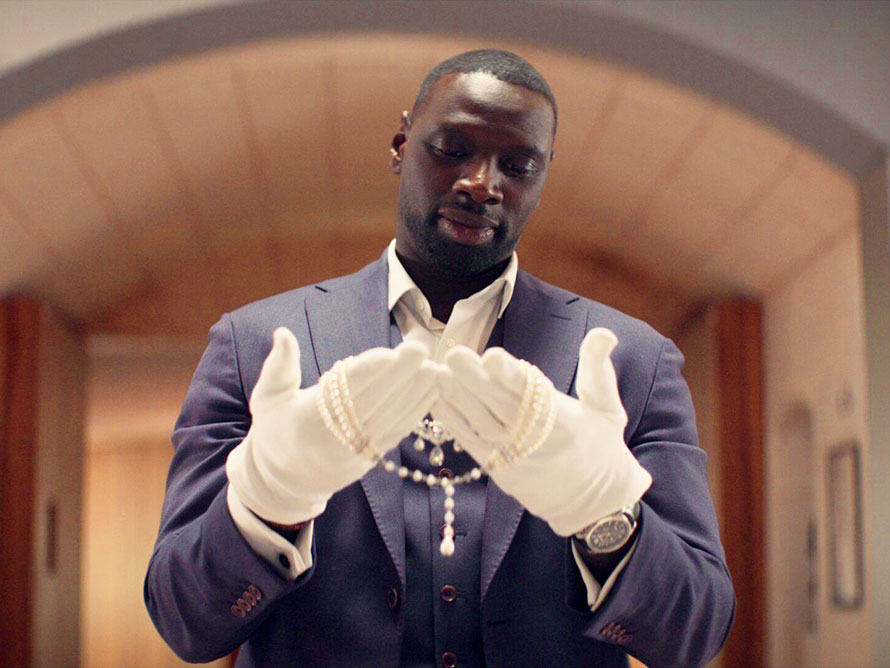Should we be so fascinated by brilliant criminals? A new French drama about a cunning conman has become a massive Netflix hit. But some say Lupin sends entirely the wrong message. Assane Diop stares at the necklace. It is beautiful; row upon row of pearls and jewels that once adorned the neck of none other than Marie Antoinette. As a 6ft 2in Black man, Diop normally stands out from the crowd in French high society. But here, dressed in the dull grey tracksuit of a cleaner at the nation’s most famous museum, he is invisible: just one of the many people of colour who arrive at the Louvre every day to work. Today, invisibility suits him well. As he stands before the jewels with his mop in his hand, Assane Diop is formulating a cunning plan. Soon, the necklace will be his. This is the opening scene of Lupin, a new French Netflix series that has become a surprise global hit. Just a week after its release, the show has become the first French-language program to break into America’s top ten most watched list. Now, Netflix believes it will reach an astonishing 70 million people in its first month online. Lupin tells the story of Assane Diop, a brilliant conman with a heart of gold who uses his charm to pull off a series of stunning thefts in the heart of Paris. The series’ title comes from the fictional character who inspires Diop’s crimes – France’s answer to Sherlock Holmes, Arsène Lupin, the beloved gentleman thief first invented by writer Maurice Leblanc in 1905. The two men have a lot in common. Lupin commits his first crime aged just six, stealing the same famous necklace to help his mother after she is treated badly by her boss. For Diop, the robbery is an act of vengeance for his father Babakar, a Senegalese immigrant who was framed for stealing the necklace 25 years earlier, and who later died in prison. “Assane, whose victims are the same wealthy men and women who despoiled his childhood, isn’t just a worthy heir to Lupin,” says writer Sophie Gilbert. “He’s also a righteous and timely reconfiguration of what it means to be a French hero.” He may be a new French hero, but Diop is just the latest in a long line of quick-witted criminals who have captured the popular imagination. Indeed, from folklore classic Robin Hood to Villanelle, the assassin who murders a prominent politician with a single spray of her poisonous perfume in Killing Eve, we have long been fascinated by brilliant and devious crimes. Even real-life criminals are not beyond our admiration. In 2017, parkour enthusiast and self-confessed art lover Vjeran Tomic was jailed for using a liquid chemical to remove the glass from the windows of the Paris Museum of Modern Art and steal £80m worth of paintings. Even then, the prosecutor admitted that he had a “professionalism that borders on excellence.” For medieval outlaw expert Thomas Ohlgren, Lupin’s success will have come as no surprise. For a character to achieve criminal hero status, he says, they need a good story. Daring deeds, cunning disguises and narrative suspense are all crucial elements – and Assane Diop has them all. So, should we be so fascinated by brilliant criminals? The art of deception Absolutely not, say some. Assane Diop is not a hero. Fictional shows like Lupin or Killing Eve, as well as dramatisations of real heists such as The Hatton Garden Job, risk glamorising a life of crime. It is wrong to use words such as “clever” and “brilliant” to describe people who shamelessly rob others of their possessions. Criminals deserve condemnation, not praise. It is harmless escapism, say others. Crime dramas are so popular not because they portray hardened criminals but because they show ordinary people outsmarting the most sophisticated security systems in the world. The thrill of heist stories comes from the momentary crossover of hero and villain. Assane Diop may be a thief – but he is also a gentleman; a moral man redressing society’s wrongs. KeywordsMarie Antoinette - Queen of France from 1774 until her execution during the French Revolution in 1792.
Should we be so fascinated by brilliant criminals? A new French drama about a cunning conman has become a massive Netflix hit. But some say Lupin sends entirely the wrong message.
The art of deception
Keywords
Marie Antoinette - Queen of France from 1774 until her execution during the French Revolution in 1792.
From fictional French conman to surprise hero

Glossary
Marie Antoinette - Queen of France from 1774 until her execution during the French Revolution in 1792.
